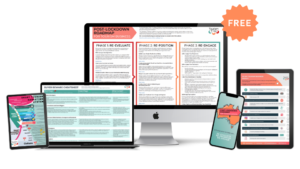In this episode, Liz Ward and Fabienne Wintle explore the evolving landscape of destination marketing and share strategies for DMOs to achieve financial independence and enhance visitor experiences. Drawing from their presentation at the Local Government New South Wales Visitor Economy Conference, they highlight the importance of leveraging digital assets and local expertise to transform the business models of DMOs and local government associations.
Reimagining Destination Marketing: Leveraging Assets for Financial Independence and Enhanced Visitor Experience
In the evolving landscape of tourism, destination marketing organisations (DMOs) and local government associations face significant challenges. One recurring issue is the risk of losing funding and the struggle to demonstrate a strong value proposition to their members. At a recent Local Government New South Wales Visitor Economy Conference, Liz Ward and Fabienne Wintle, co-founders of Tourism Tribe, delved into this pressing topic and shared insights on how DMOs can transform their business models to achieve financial independence and better serve their regions.
Harnessing the Power of Analytics
The journey towards a more sustainable business model for DMOs begins with analytics. The transition to Google Analytics 4 (GA4) has prompted many organisations to question how many leads they are generating for their members. By tracking where visitors click on their website—be it on phone numbers, addresses, or email links—DMOs can measure their impact and value. Understanding these metrics allows organisations to set clear goals, such as financial independence, and work towards achieving them.
The Starting Point: Measuring Leads and Bookings
To demonstrate their value, DMOs must measure the leads they generate for local operators. This involves tracking bookings made through their websites and Visitor Information Centers (VICs). Unfortunately, many DMOs have not yet set up this tracking. However, once implemented, it opens the door to more profound strategic questions about the DMO business model.
Rethinking the DMO Business Model
A robust DMO business model should aim for complete financial independence from government funding. This involves becoming the primary source of truth for inspiring, planning, and booking capabilities for the region. A critical aspect is showcasing the best the region offers, not just those who pay membership fees. Transparency and trust are vital. By representing the whole industry, DMOs can better meet customer needs and build trust.
Commercialising the DMO Model
To achieve financial independence, DMOs need to adopt a more commercial approach. Whilst some DMOs, and VICs, in nearly all cases, have booking systems, these are often underutilised and their approaches could be modernised to generate a greater level of revenue through booking commissions and/or fees. Staff should be sales-driven and possibly commission-based, capable of creating and selling itineraries. Despite the challenges of using technology, it is essential to provide high-touch services. Customers often prefer talking to a knowledgeable local over making online bookings. Therefore, connecting customers with locals who are trained in sales and are genuine destination specialists, who can help them book their stays is crucial.
The Opportunity for DMOs
The potential for DMOs is immense. By leveraging their passionate local staff, digital assets, and booking systems, they can optimise lead and sales generation. Imagine a DMO website that offers better service than major travel sites like Booking.com or Expedia. By integrating technology with high-touch customer service, DMOs can provide a superior booking experience, thereby driving more leads and bookings to local operators.
Enhancing Customer Interaction
DMOs must ensure customers can easily contact them. This can be achieved by adding pop-ups or lead magnets on their websites, connecting customers directly to staff ready to help. Sales training for VIC staff is also crucial. While customer service training is common, sales training can significantly enhance their ability to close deals and provide exceptional service.
Transparency and Value Proposition
Providing transparency back to local operators about the leads and bookings generated is essential. By opening up analytics, DMOs can demonstrate their value proposition more effectively. This transparency fosters trust and encourages operators to view the DMO as an indispensable partner.
Conclusion: Time for Change
The time is ripe for DMOs to rethink their business models.
They have solid marketing foundations in place through their consumer websites, booking systems and passionate, knowledgeable, local staff.
By commercialising their operations and focusing on lead generation and bookings, they can achieve financial independence and provide exceptional value to their local tourism operators. As we help clients solve these challenges, we see the potential for DMOs to transform their roles and thrive in the ever-changing tourism landscape.
We encourage all destination marketing organisations and local government associations to embrace this new approach and unlock the full potential of their assets.
Key Takeaways
- Utilise Google Analytics 4 (GA4) to measure leads and bookings generated through your website and Visitor Information Centers (VICs).
- Aim for financial independence by becoming the primary source of truth for planning and booking capabilities in your region.
- Adopt a commercial approach, modernising booking systems and training staff to be sales-driven and commission-based.
- Enhance customer interaction by adding pop-ups or lead magnets on your website, and providing sales training to VIC staff. – Ensure transparency and demonstrate value to local operators by opening up analytics and showcasing the leads and bookings generated.




